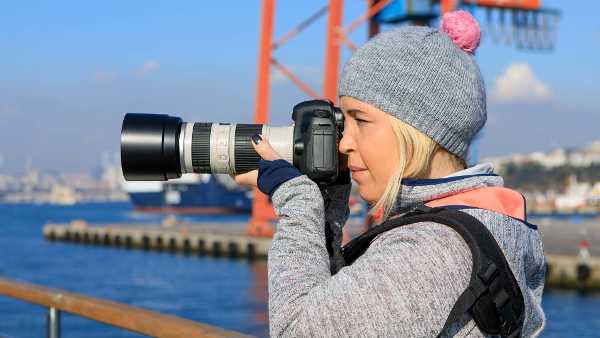Travelling to the UK with goods in your delivery van
- Marco van Hagen
- Background
- Edited 3 June 2025
- 5 min
- Managing and growing
- International
Carrying out installation work or participating in a trade fair in the UK. This often involves travelling with your own delivery van, in which you also transport goods. To travel to the UK with your van and your goods, you must first make the necessary arrangements in the Netherlands. In the UK, there are different rules for the means of transport you use, the goods you take with you, and for yourself.
Your vehicle
Pre-registration with Portbase
If you are travelling to the UK by bus from a Dutch port, you must report this in advance to Portbase. This system connects Dutch ports. Pre-registration is required for:
- your journey to the UK
- the export of your goods
- the return journey to the Netherlands
- the re-import of your goods
If the information in your pre-notification is incorrect, you will not be allowed to board the ferry.
Software
Portbase is used with a special computer programme. Portbase determines which suppliers sell these programmes. After purchase, it can sometimes take several weeks for the programme to be installed. Do you need a pre-notification immediately? Or do you not want to buy your own computer programme? Then ask the logistics service provider Beurtvaartadres to arrange this for you.
Registering your vehicle with the GVMS
The UK has a registration system for freight vehicles, the Goods Vehicle Movement System (GVMS). The British government wants to use this to move goods more quickly between the EU and the UK. You must first register your truck or van in the GVMS before taking the ferry or train to the UK. It does not matter whether your vehicle is empty or full.
Before you register with the GVMS, you will need a British EORI number. You can use this number to create an account on the British Government Gateway. You can then register your vehicle with the GVMS.
Provide the correct information
Many businesses experience delays at the border with their vehicles. This is usually due to incorrectly entered information about the goods or the means of transport. Therefore, please note the following:
- Enter your port of arrival in the UK in the GVMS. For example, are you travelling via the Eurotunnel? Then that is your port of arrival.
- State your vehicle registration number.
- The GVMS will generate a Goods Movement Reference number (GMR). You will need this number when communicating with the British Customs Administration of the Netherlands.
You
Visa required or not
You do not usually need a visa for a business trip to the UK. You do not need a visa to visit or participate in trade fairs in the UK. Sometimes you will need a Standard Visitor visa. For example, if you have previously been denied entry to the UK or if you have a criminal record. You must also meet the following requirements:
- You have a valid passport.
- You can prove that you can support yourself.
- You can show that you can pay for your return journey or have already paid for it.
- You do not own a house or flat in which you live for long periods of time. This is the case, for example, if you are an installer working in the UK for a longer period of time.
Since 2 April 2025, you need an Electronic Travel Authorisation (ETA) for your trip to the UK. You must apply for this travel authorisation before you leave for the UK. You can do this online via the British government website or the UK ETA app. The ETA costs ten British pounds.
Installing machines
The British government has a list of regulated professions. You can only carry out these professions and activities in the UK if you have a diploma. An example is maintenance on installations where you work with F-gases. F-gases are fluorinated greenhouse gases. Dutch diplomas are not valid in the UK, but the British government may recognise them. If the British government recognises your diploma, you will not need to follow an English training course.
Installation work and participation in trade fairs
Participating in trade fairs does not require notification or a permit. You can install machines at customers' premises in the UK without a visa. The condition is that your customers purchased these machines from you or are leasing them from you. This also applies if you are travelling to the UK for maintenance or repair of these machines. Are you going to maintain machines that you did not supply yourself? Then you will need a work visa. For example, the Service Supplier Visa.
Your goods
Sometimes you may take items with you to the UK on a temporary basis. Tools or trade fair materials, for example. You take these back to the Netherlands after use. Sometimes you buy or sell products in the UK.
Temporary import for installation work and trade fair participation
Tools for installation work or trade fair materials are usually taken back with you after use. To do this, you must submit an export declaration to the Dutch Customs Administration. In the UK, you declare the goods for temporary admission. You do not pay VAT or import duties. However, you often do pay a deposit.
ATA carnet
An ATA carnet for goods is another option. An ATA carnet is useful during your trip, because you arrange this document in advance in the Netherlands. And you do not pay a deposit in the UK.
Import duties and VAT
If you import goods permanently, you pay import duties and VAT. Think of installation materials that you leave behind in the UK. How much import duty you pay depends on the HS code of your product. This product code is called a commodity code in the UK. You can find the amount of British import duty for your product on the British government website. In Access2Markets, you can find the import duties in the Netherlands.
For some products, you pay lower import duties. This is due to the free trade agreement between the EU and the UK. The condition is that the products must be of preferential EU origin.
Product requirements
The UK has rules for product safety. This is regulated, for example, by the UKCA, which is similar to the CE marking. Keep this in mind if you install electrical appliances or use building materials, for example.
UK Conformity Assessed (UKCA)
Some products must bear the UK Conformity Assessed (UKCA) mark. This is similar to the European CE marking. This applies, for example, to building materials, parts of electrical appliances or measuring instruments. As an exporter, you may also use the CE marking instead of the UKCA. The UK previously indicated that products from the EU would require a UKCA symbol from 1 January 2025. The British government has now postponed this indefinitely.
Insurance
The minimum insurance for your delivery van is third-party insurance. This is similar to Dutch third-party liability insurance. You can prove this with your green card. Take this with you to the UK. You will also need the green card if you are selling at weekly markets.
Products or tools that you carry in your delivery van are usually not covered by your car insurance. Decide for yourself whether you want to take out separate transport insurance for this. Also check which insurance you need if you are travelling to the UK on business.
Legal liability
As a seller of products at a market, you need public liability insurance. This is similar to our compulsory third-party insurance. If you take staff with you, you also need employers' liability insurance for them.
Social security
The Netherlands has a social security treaty with the UK. This allows you to remain socially insured in the Netherlands. You can prove this in the UK with an A1 certificate/certificate of coverage. You can apply for this at the Social Insurance Bank (SVB). There is no charge for this.
Health insurance
Check whether your health insurance covers you in the UK. If you incur medical expenses during your trip, you may have to pay these yourself first. Ask your insurance company whether they will reimburse these costs. If not, take out additional travel insurance with medical cover.

